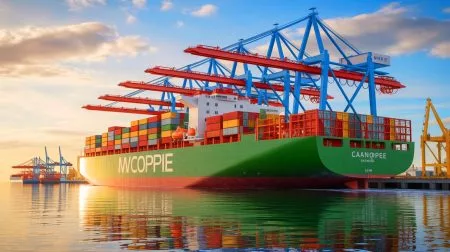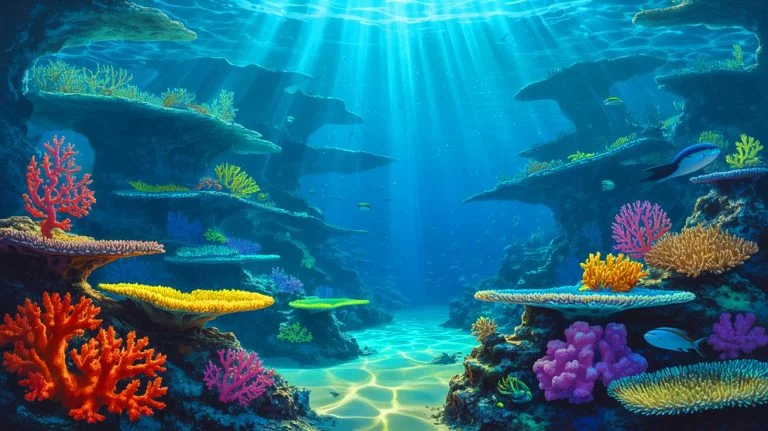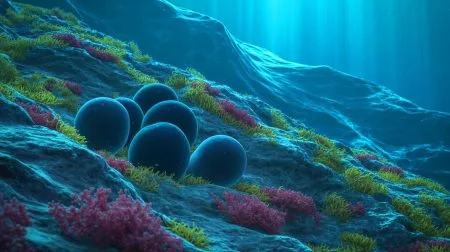| IN A NUTSHELL |
|
The oceans surrounding Hawai‘i, known for their vibrant coral reefs, are facing an alarming threat from ocean acidification, a phenomenon exacerbated by increasing carbon dioxide levels. Recent studies reveal that these waters could soon reach acidity levels not seen in thousands of years, posing a severe risk to marine ecosystems. This development is particularly concerning for the Hawaiian Islands, where coral reefs play a crucial role in biodiversity and the local economy. As researchers continue to study these changes, there is an urgent need for action to protect these precious marine environments.
Ocean Acidification: A Growing Threat to Hawaiian Waters
The increasing acidity of the world’s oceans presents a significant risk to marine life, particularly coral reefs. As oceans absorb more carbon dioxide from the atmosphere, their pH levels decrease, leading to a more acidic environment. A recent study conducted by oceanographers from the University of Hawai‘i at Mānoa indicates that acidification levels near the main Hawaiian Islands could reach unprecedented levels within the next three decades. This rise in acidity is particularly detrimental to marine ecosystems, as it weakens the shells and skeletons of sea creatures like corals and clams, making them more susceptible to other environmental stressors.
Despite these challenges, there is hope. Some marine species have shown signs of adaptation to the changing conditions, offering a glimmer of optimism for the future. The research highlights the importance of understanding these changes and developing strategies to protect Hawaiian coral reefs and sustain marine ecosystems. By providing critical insights, the study aids scientists, conservationists, and policymakers in their efforts to safeguard these vital habitats for future generations.
Modeling the Future: Predicting Acidification Around Hawai‘i
Advanced modeling techniques have been employed by researchers to predict future ocean acidification near the Hawaiian Islands. Led by Brian Powell from the University of Hawai‘i, the research team utilized high-resolution computer models to project changes in ocean chemistry through the 21st century. Their projections are based on various climate scenarios that reflect different levels of carbon dioxide emissions, offering a comprehensive view of potential outcomes.
According to Lucia Hošeková, the lead author of the study, significant increases in ocean acidification are expected in the surface waters around the main Hawaiian Islands, even if carbon emissions stabilize by mid-century. The extent of these changes varies depending on the emission scenario, with high-emission scenarios posing the greatest threat to coral adaptation. The concept of ‘novelty’ was introduced to describe the difference between projected acidification and historical conditions, revealing that windward coastlines are likely to experience the most dramatic changes.
Unexpected Changes: Shifts in Coral Environments
The study’s findings regarding future levels of ocean acidification were unexpected, as they highlight conditions far beyond the natural variations that coral ecosystems are accustomed to. Tobias Friedrich, a co-author of the study, emphasized the unprecedented nature of these projections for Hawaiian waters. While corals have shown some ability to acclimatize to slightly elevated acidity, the magnitude of projected changes poses significant challenges to their adaptability.
Researchers acknowledge that the impact on corals will depend on the global climate scenario that unfolds. In the best-case scenario, corals may still be affected, but the situation could be manageable. This underscores the need for ongoing research to examine the combined effects of various stressors on corals. The study serves as an initial step in understanding the complex changes affecting corals and other marine organisms, with a focus on how these changes vary across the Hawaiian Islands.
Looking Ahead: Future Research and Resilience
The research team is committed to further investigating the future changes in Hawaiian waters, specifically focusing on heat stress, potential refugia for coral reefs, and the impacts on Hawai‘i’s fisheries. By continuing to explore these areas, scientists aim to develop strategies that promote resilience and long-term sustainability for coral ecosystems.
Reference: “Patterns of Ocean Acidification Emergence in the Hawaiian Islands Using Dynamically Downscaled Projections” by L. Hošeková, T. Friedrich, B. S. Powell, and C. Sabine, published in the Journal of Geophysical Research: Oceans. DOI: 10.1029/2024JC021903.
The future of Hawai‘i’s coral reefs hinges on our ability to mitigate the impacts of ocean acidification and climate change. As researchers delve deeper into understanding these environmental challenges, the question remains: what innovative solutions will emerge to protect these invaluable ecosystems for generations to come?
Did you like it? 4.5/5 (21)







Is there any hope for the reefs to recover naturally? 🤔
Thanks for the comprehensive article! This is indeed a wake-up call. 🌊
Are there any government initiatives underway to combat this?
Couldn’t this also be part of a natural cycle that we’re misinterpreting?
I appreciate the focus on scientific data. Well done! 👏
Why isn’t this more widely covered in the mainstream media?
Seems like we’re doing more harm than good with our “progress.”
How will this affect tourism in Hawai’i?
Isn’t it too late to reverse the damage already done?
Thank you for bringing this to light! We need more awareness!
Is there a link between this and global warming?
What can ordinary people do to help the reefs?
Great article! But are there any positive outcomes possible?
Could coral farming be a solution to this crisis? 🐠
Grateful for the research, but what’s the next step?
Do we really know enough about ocean ecosystems to make these predictions?
Why hasn’t the government acted sooner? 🤷♂️
This is truly heartbreaking… 😢
Can reducing carbon emissions actually help at this point?
Maybe the aliens can help us out here. 😅
Is there any way to artificially reduce the acidity of the ocean?
Why is it always the beautiful places that suffer most?
Is there any funding for further research on this topic?
Such an eye-opener! We need more articles like this.
Are there any success stories of coral adaptation elsewhere?
Authorities seem to be dragging their feet on this issue. 😡
How reliable are these models in predicting future conditions?
What’s the timeline for potential reef recovery, if any?
Could technology play a role in saving the reefs?
What’s the role of local communities in addressing this issue?
This is deliberate destruction indeed. Who’s accountable?
Why don’t we hear about this from politicians? 🤔
Thank you for the in-depth analysis. Very informative!
What other regions are experiencing similar threats?